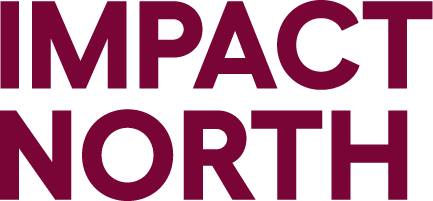Join the global conversation
First Nations peoples – both in Australia and all over the world – have been engaging in social enterprise activities for a long time, long before the term social enterprise was thrown into our vocabulary. For too long, however, they have been left out of the conversation at all levels. Now that awareness around the social enterprise sector is growing closer to home, it’s all about getting Indigenous voices heard in the conversation.
At SESNA 2021, Alex Hooke (Social Traders) spoke with Bianca Stawiarski (Managing Director / Founder, Warida Wholistic Wellness) about what it means for Indigenous voices to truly be included and the huge impact that they can have at every level.
Bianca experienced the power of stepping into the global conversation can have, when she attended the Social Enterprise World Forum in 2019 in Ethiopia. A part of the Australian delegation, Bianca attended a discussion on Indigenous knowledge where she discovered that not all First Nations peoples held the same views around Intellectual Cultural Property.
“I asked a question about misappropriation of cultural property and knowledge and things like that,” Bianca shared. “Afterwards, a woman from the United Nations – from Nigeria – came up to talk to me and she said ‘I had no idea about anything like that’.”
The woman explained that in Nigeria they were collecting stories from Elders, but it wasn’t laid out that they didn’t have to hand those stories over freely. They also had no protection over that knowledge and no protection over how that knowledge was used.
“She said ‘I’m going to go back and recommend [to the UN in Nigeria] that we actually need to do this a little differently’ – that is why we need to be on this global stage.”
Bianca’s question to the panel – not to the woman herself – had sparked a new way of thinking that may lead to change at the UN level. There’s enormous power in that.
Getting involved in the global conversation can seem like a daunting task, but it doesn’t have to be – not when you see the links between deep, local impact and the wider global impact. Bianca recommends that Indigenous entrepreneurs just put themselves out there more – embracing all the opportunities that currently exist. Her top tips are to:
Get certified – while this isn’t a necessary step, it can make it easier for entrepreneurs, having everything clearly laid out for them.
Join your local / state network – everyone in the social enterprise community is big on supporting one another. These networks are the best way to get connected.
Link up with social enterprises in your area and think about how you can collaborate together to create impact. When it comes to procurement, many social enterprises may feel that they’re too small to achieve what big organisations are looking for, but collaboration with other social enterprises can see simultaneous social impact and business growth.
“Have a yarn to the people in your community, the ones engaging in social enterprise,” Bianca says. “It’s not a charged thing, it’s not a business thing – it’s about supporting each other and that’s what this is all about too. Supporting each other’s social enterprise. Supporting each other’s impact. Supporting each other on a personal level. We all know how to do that. Relational connectedness is what we do.”
The COVID-19 pandemic has also had a huge impact on Indigenous social enterprises being rocketed to a global audience, making it clearer than ever that global opportunities and local impact are not mutually exclusive.
“My business increased by 119%. I think that’s because people realised that they don’t need to be in your local area to access your service.The opportunities are there, we just need to think a little differently. We have to think across Australia, across the world, our impact might be local but everyone wants what we’ve got.”
With the Social Enterprise World Forum coming to Brisbane this year, it’s clear that there is an incredible opportunity for Australian Indigenous voices to move to the front, to drive the conversation with incredible knowledge of community and reciprocality.
“Our voices need to be heard in these forums, in these spaces, in procurement. We’re deadly, we think about community, we’re already giving back, it’s reciprocal – we just need to be there.”
“Let’s make changes, let’s have our voices included in the conversation. Not just us coming along and being part of the flow – let’s drive this.”
Want to stay in the loop for future events jam-packed with the latest insights from the social enterprise sector? Sign up to the Impact North mailing list so you never miss a thing.
